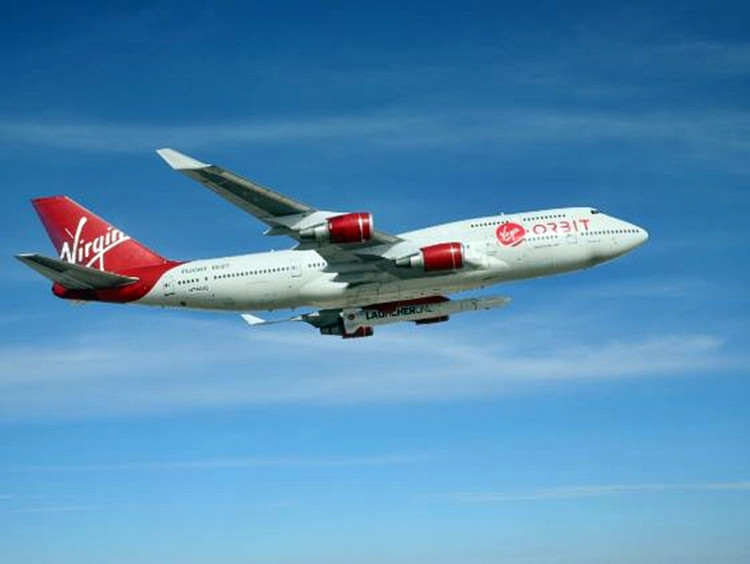The United Kingdom aims to become a leader in "horizontal spaceflight" and has set aside a substantial sum to attain this aim.
Vertical spaceflight is the image we've seen since the Space Age began in the 1950s: a huge rocket lifting off vertically from a launch pad carrying a spacecraft and trailing an enormous column of smoke and fire as it ascends.
On the other hand, a horizontal spaceflight is a new form of spaceflight that relies not on rockets but on massive airplanes that take off horizontally from a spaceport or an airport with a satellite-carrying rocket slung underneath it.
There have been no successful horizontal spaceflights that have lofted a satellite into orbit as of yet but the UK plans to change all that with a lot of help from Virgin Orbit.
In May, the UK Space Agency revealed a $2.5 million development fund for horizontal spaceflight. The fund will allow existing airports to develop new infrastructure to allow aircraft or spaceplanes to take off and deploy satellites in space. Horizontal spaceports also offer an attractive option for future space tourism.
The agency said spaceport sites such as Newquay in Cornwall, Campbeltown and Glasgow Prestwick in Scotland, and Snowdonia in Wales are already developing their sub-orbital flight, satellite launch, and spaceplane infrastructure.
This new fund will help develop ambitious proposals that enable spaceplanes and aircraft capable of deploying satellites to operate from UK spaceports as part of the government's modern industrial strategy.
The UK intends Spaceport Cornwall to become the cornerstone of its efforts to create a "domestic satellite launch capability," said the UK Space Agency. The project will take Cornwall Airport Newquay and upgrade it to accommodate flights of rocket-carrying planes.
These planes will take off from Spaceport Cornwall, fly to their designated altitude, and unleash their rockets mid-flight. The rockets will then zoom towards orbit while the plane returns to land at Spaceport Cornwall .
Analysts said the main beneficiary of the UK's focus on spaceport development will be Virgin Orbit, whose goal is to "bring launch back to Britain."
Virgin Orbit will use a modified Boeing 747 jumbo jet dubbed "Cosmic Girl" as its mother ship. Cosmic Girl will let loose LauncherOne rockets to carry satellites into low Earth orbit (LEO).
Virgin Orbit will give the UK the ability to launch satellites from British soil rather than paying a lot of money for vertical launch rockets operated by SpaceX (American) and Arianespace (European).
LauncherOne, however, is designed to carry a payload of just 500 kg to LEO. Its a big advantage is that it's cheap compared to SpaceX and the rest of the vertical launch firms.
Virgin Orbit will charge somewhere between $6 million and $12 million per launch compared to SpaceX's $60 million and Northrop's $56 million.






